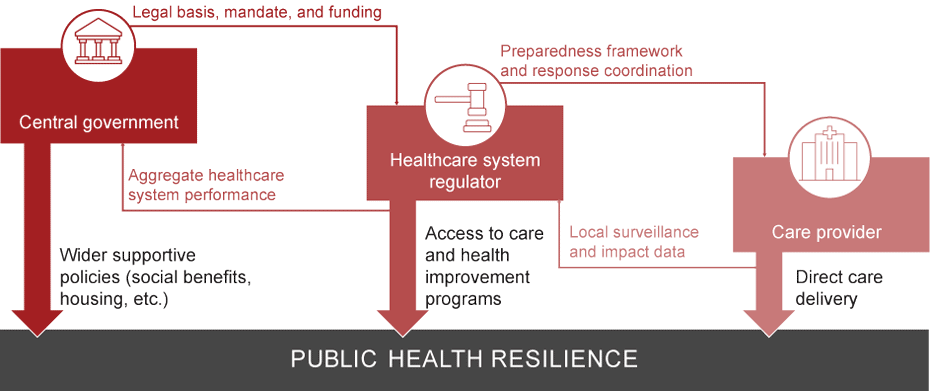{{item.title}}
{{item.text}}

{{item.text}}
Healthcare is a global priority, and the COVID-19 pandemic has reconfirmed the vulnerabilities of worldwide healthcare systems. Building resilient healthcare systems to withstand public threats is essential.
How can countries build up the resilience of their healthcare systems?
Healthcare resilience is a country’s capacity to prevent, surveil, respond to, and recover from shocks, stresses, and adversity.
Strategy& and the World Government Summit have developed an evidence-based tool to score a country’s healthcare resilience based on 3 main components, underpinned by more than 210 indicators. To build healthcare resilience, governments need to identify their countries' exposure to hazards, their vulnerabilities, and their response capacities.
Our healthcare resilience assessment framework
Governments need to assess where they stand on these three dimensions and then must build on their strategies and plans, develop regulations and governance structures, and form the right partnerships for financing, information management, infrastructure, and medicines required in the future.
Healthcare resilience requires integrated and holistic action, with three core stakeholders working closely together: central governments, health regulators, and healthcare providers.
Previous health emergencies may have highlighted the weaknesses of various healthcare systems, but the COVID-19 pandemic has put them in the spotlight. Governments now have an opportunity to make their healthcare systems more resilient and work with healthcare regulators and providers to deliver the most responsive and agile healthcare systems possible for the future.






Menu